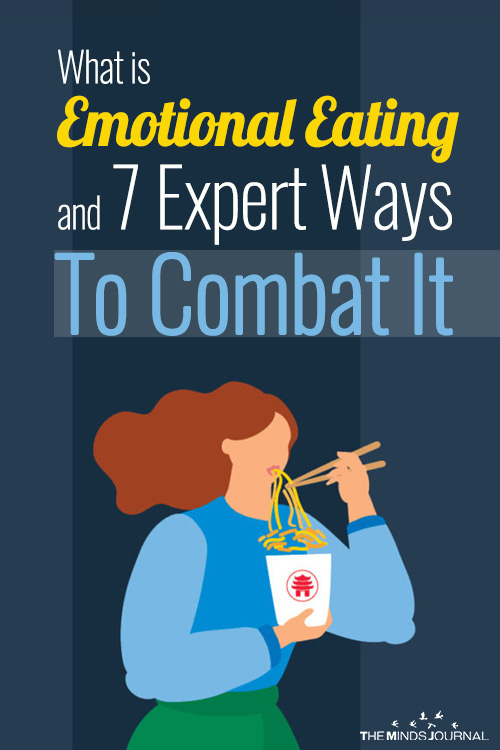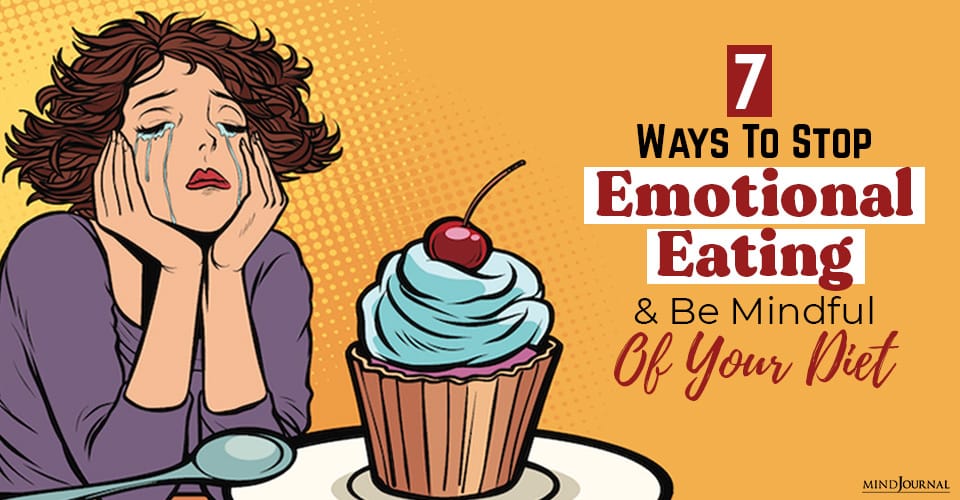Do you feel like munching on something all the time? Are you eating to hide your emotions? If food is your go-to solution whenever you feel upset, then you may be engaging in emotional eating.
Are you using food as a substitute for love?
Have you ever found yourself mindlessly noshing on cookies only to discover you’ve eaten the whole box? When you have an argument with your significant other, do you reach for a pint of ice cream or a bag of barbecue chips? If you’re feeling lonely after a breakup, do you find comfort in a bowl of mac and cheese or a slice of pizza?
If so, you’re not alone. Emotional eating is a serious problem that experts say can account for 75 percent of overeating.
If you feel a sudden onset of insatiable hunger, you’re craving a specific food, you’re eating alone, you’re consuming mass quantities of food, or you’re feeling angry or guilty about the food you’re consuming, you may be suffering from an emotional eating disorder.
I spoke with a panel of experts to determine just how to stop emotional eating and break the tricky cycle of destructively eating to fill up your heart, instead of just your stomach.
Related: What is a Food Empath? 6 Ways To Reduce Stress and Overcome Food Addictions
“Emotions are often easy to mistake for hunger,” says life and health coach Nicole Burley, author of Proud, Not Perfect: A Practical Approach to Healthy Habits. “When you think about it, we feel our pain, our loneliness, our sadness in our gut — the same as when we’re hungry.”
Health and lifestyle coach Tatiana Abend says that people often resort to emotional eating because they’re feeling rejected, especially in their romantic relationships. Abend warns, “Self-care could go out the window if you feel rejected and tell yourself, ‘Everyone hates me, so I hate myself.’”
Nancy Lee Bentley, Wholistic Health Expert, believes that the “solar plexus,” the major energy junction center under our ribcage, is in the same area as the stomach, causing us to sometimes confuse the emotional feeling of satisfaction with the physical sensation of “fullness” from having eaten. “During a breakup or long periods of loneliness,” says Bentley, “we sometimes try to ‘fill’ up that energy center with food to make up for the withdrawal of love.”
Bentley says that the chemistry of love and emotions is similar to the chemistry of, say, chocolate. “Love stimulates certain hormones and neurotransmitters, especially dopamine, endorphins, oxytocin, and serotonin, the calming and stimulating ‘feel goods’ we get from carbs and other foods, like chocolate.”
Burley advises, “If you find yourself frequently turning to food to meet your need for companionship, comfort, or love, then you might want to re-evaluate your circumstances and see how you can make some changes. Food can only do so much.”
Of course, eating can also be the result or cause of positive emotions.
“We use food to deal with our happy feelings too,” says Meryl Hershey Beck, author of Stop Eating Your Heart Out: The 21 Day Program to Free Yourself From Emotional Eating. “We use food to celebrate, to express love, to entertain.”
But for many people, emotional eating can escalate to a life-threatening addiction and even cause obesity.
“Everyone engages in emotional eating a little bit, but some of us cross a line where it takes over. For me, food was my drug of choice,” says Beck, who describes how she used to carry chocolate with her at all times when she traveled just to feel safe and secure. “There’s a connection to feeding yourself as a substitute for love, but the food is not what you really need. A lot of people know it, but they do it anyway.”
If you find yourself succumbing to emotional eating, there are steps you can take to help yourself overcome the addiction:
1. Be aware of why you’re eating.
Experts agree that the first step to combating emotional eating is to become aware that you are eating from a place of emotional hunger, not physical hunger.
“It’s important to try and remain objective about your motives when you’re reaching for food,” says Burley. “Is your physical body hungry and in need of sustenance? Or are you feeling bored, lonely, sad or disappointed?”
Bentley says that becoming conscious and discerning whether your “feelings” are physical or emotional can help you stave off the beast.
2. Ask yourself why you’re doing it.
Once you become aware that you’re engaging in emotional eating, try to identify your emotions. Abend recommends spending time with these uncomfortable feelings and letting yourself really feel them.
“Recognize the feeling,” says Abend. “Be able to say, ‘I am lonely’ or ‘I am bored.’ Spend some time with that feeling; don’t run away from it and rush off into action in the kitchen.” Most importantly, if you have trouble clarifying what in your life is really bothering you or driving you to find comfort in food, don’t be afraid to seek counseling.
Related: The Food Craving Guide: What You Think You Want But What Your Body Actually Needs
3. Explore what else you can do to meet your needs.
“If you can stop long enough to ask yourself, ‘Am I physically hungry?’ and the answer is no, then you need to see what else you can do to meet your needs,” says Beck.
“The food will take away the pain, but always only momentarily. If it’s a breakup, or loneliness or sadness, maybe you can call a friend. Or, maybe you just need to be with the feelings and cry for a few minutes.”
4. Plan your meals.
“When you wake up in the morning, you think you’ll have breakfast, lunch, and dinner — you don’t plan on eating an entire box of cookies in the afternoon,” says Abend.
“Try to stay in tune with your real signals and a hunger schedule. Remember to brush your teeth after meals so you know that food has stopped for the day. Drink plenty of water to stay hydrated.”
5. Don’t obsess over food.
While you should try to condition your body to know when it’s time for a meal, don’t obsess over food, or you will inevitably go overboard. If you absolutely have to eat, try to make healthier substitutes, suggests Abend: popcorn instead of cookies, for example.
6. Be kind to yourself.
“Be aware, but without self-judgments,” cautions Beck. “Recognize what you’re doing without feeling like a bad person.”
Beck describes how women, in particular, are taught to take care of everyone else’s feelings before their own, but what they really need is to be gentle with themselves and pay attention to their own needs first. “Think of the flight attendant before takeoff,” Beck says. “They always advise you to put your own oxygen mask on first.”
Related: Diet & Depression: 6 Ways Food Impacts Your Mental Health
7. Be okay with who you are.
Making peace with where you are in your life and love life, even if it’s not an ideal place, will help you to avoid trying to satisfy your soul with food. “Women especially have more of a tendency to look outside themselves to a man to feel fulfilled,” says Bentley. “Focusing on being your own person, instead of just part of a duo, is really the optimum way to attract the kind of man you really, deep down, want and deserve.”
Abend agrees: “Some people may be wishing their lives were different, thinking ‘I wish I had a boyfriend’ or ‘I wish my boss didn’t yell at me today.’ But emotion is not hungry. Actual loneliness is not hungry; it doesn’t need feeding. Don’t let your feelings chase you to the fridge!”
Written By Diana Marie Collins Originally Appeared On YourTango











Leave a Reply